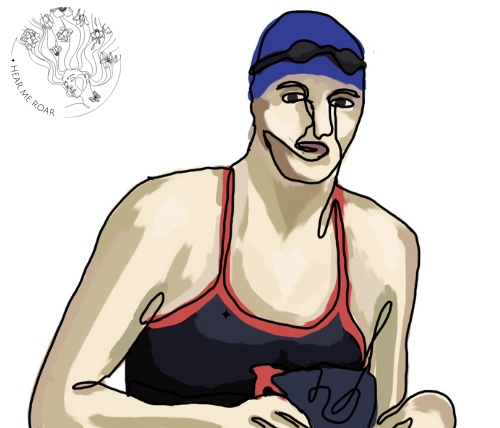It’s Time To Stop Arguing Over Trans Women’s Participation In Sports.
Science has proven there aren’t enough differences to give trans women the upper hand when competing alongside cis women.

Lia Thomas is a swimmer for University of Pennsylvania, and she is first openly trans athlete to win an NCAA Division I national championship for the 500-yard women’s freestyle event. Her win sparked a lot of controversy over the extent to which trans women should be allowed to participate in sports alongside cis women.
April 15, 2022
Headlines about Lia Thomas were everywhere when she broke records in women’s swimming. But they weren’t for the right reasons—instead of discussing her monumental achievements as a trans woman in sports and as a female swimmer, there were arguments regarding her possible advantages over cisgender women.
While it is true that trans women have some biological differences from cisgender women, the differences are not significant enough to give trans women the upper hand when competing alongside cis women.
In 2022, Thomas broke records for the women’s 200-meter and 500-meter freestyle and beat two Olympic medalists, making her the first trans athlete to win an NCAA title.
Since she transitioned three years before breaking the record, her hormone levels were within the NCAA requirements for female competitors. However, it would be incorrect to say that because her hormone levels were similar to those of cisgender women she is structured the same as them.
As is true for anyone who transitions after puberty, it is impossible not to retain some of the biological components of the gender they transitioned from. For example, Thomas could never make her arm span or pelvic size exactly match that of a cisgender woman, and it would take a significant amount of time for her to completely lose the muscle mass she had before transitioning.
This does not mean, however, that she is not an acceptable competitor. Many women are structured differently whether cisgender or not. I’m shorter than most girls my age and my hips are wider. I know girls who are taller than boys I know. I know girls who have broader shoulders than boys I know. Just because someone is structurally different than you doesn’t mean they can’t compete with you.
Now, if they are entirely different from you, such as the biological differences between cis men and women, it’s different. Cisgender women and men have many key differences, whereas transitioned trans women and cis women have few, varied differences depending on each person—not collective differences.
And, while we are on the topic of physical differences, it is important to note the lack of controversy over trans men participating in sports with cis men. The post-puberty structure of a biological woman’s body puts her at a disadvantage in most professional sports—strength in football, slimness in track, long arms for swimming, etc.—which would mean trans men who transitioned after puberty would be physically disadvantaged.
Thus, it is curious how so many men talk for hours about trans women having an unfair advantage but refuse to mention the disadvantage trans men, by that logic, would have. I sense misogyny.
It’s surprising how worked up everyone is over women’s swimming when the majority of America doesn’t even care about women’s sports.
For as long as professional sports have existed, there has been a gender pay gap between women’s and men’s sports because men’s sports have far more viewers and support than women’s. Now this in itself is another issue, considering everyone knows, as an example, men’s soccer players are basically just actors and women’s soccer players actually play the sport. But that’s for another time.
It’s not that I hate men. Rather, women, including trans women because they are women too, tend to experience a lot of patriarchal tendencies and oppression from the men they know.
It’s hard to talk about advantages for trans women in sports when we can’t even fix the definite advantages that men have in our society. There’s a lot of structural issues in the world we live in, and we need to take the time to solve those issues one step at a time.
And, one of those steps is trans women in sports. The moment we as a society realize that trans women are just as valid as cis women is the moment we can look into improving their transitions to 1) make it as close to fair as possible for them to compete alongside cis women without any controversy and 2) make them feel more comfortable in their own bodies.
“At this point in my transition I feel a whole lot better than before,” said Rachel*, a transgender girl who started her transition about three years ago. “I don’t feel like I’m pretending to be something I’m not. I just hope people who are ready to take the big step are able to and [do] not have people or issues blocking their paths.”
So before jumping into the differences between transgender and cisgender individuals, take a moment to step back and put on problem solving glasses and focus on creating an equal and compassionate society. Being enraged doesn’t result in innovative thinking, but teamwork and kindness can create anything.
*name changed
This article is a part of Seckman’s “Hear Me Roar” column, which won First Place Column from CSMA.




















![In a recent surge of antisemitism nationally, many have pointed towards social media and pop culture as a source of hate. “Many far-right people have gone on [X] and started just blasting all their beliefs, Sophomore Scott Weiner said.](https://unionstreetjournal.com/wp-content/uploads/2023/10/antisemitism-popculture-2-600x338.jpg)
